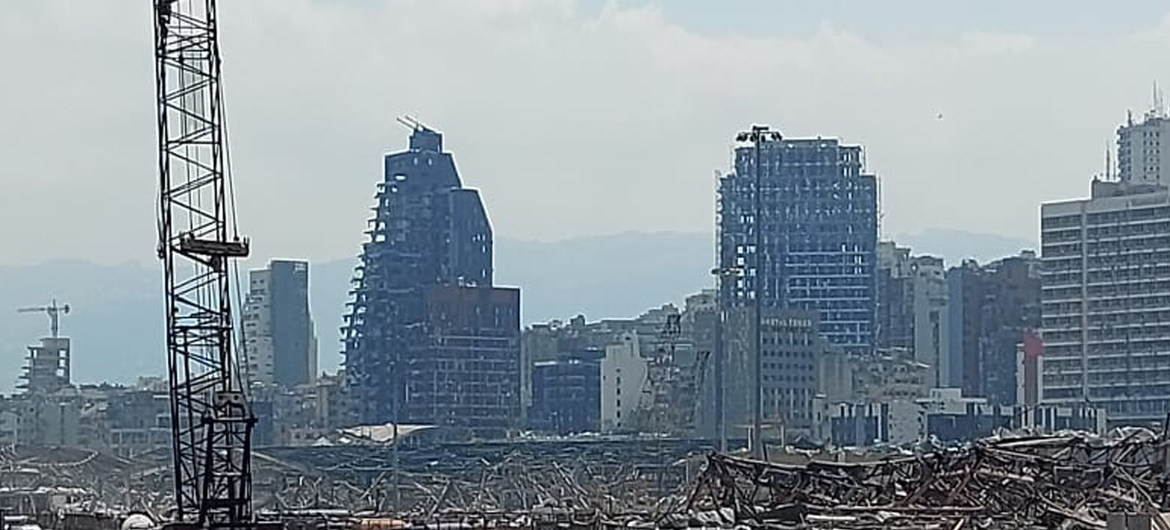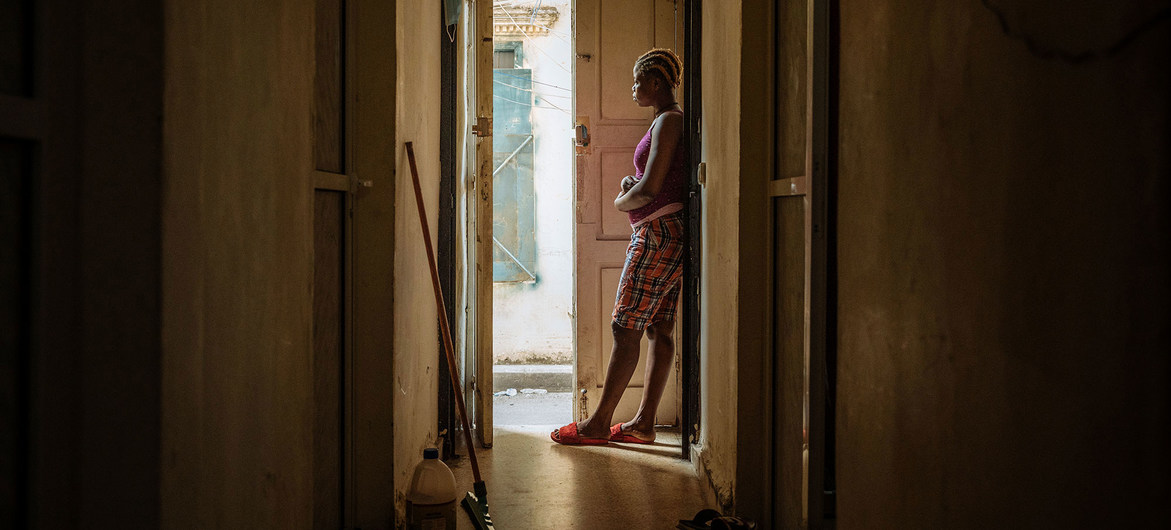Lebanon crises increase suffering of migrant domestic workers
 Many migrant domestic workers in Lebanon are denied basic human rights, and suffered abuse at the hands of their employers. Since the worsening economic crisis in the country their plight has, if anything, worsened.
Many migrant domestic workers in Lebanon are denied basic human rights, and suffered abuse at the hands of their employers. Since the worsening economic crisis in the country their plight has, if anything, worsened.
“The recruitment agencies and employers treat us as if we are human commodities!”, says Adanesh Worko, an Ethiopian worker who works in a house in Beirut. “Sometimes I am beaten and denied food but, because of my contract, I cannot choose to work somewhere else, or go back home. My employer said ‘I bought you. Pay me $2,000 and then you can leave wherever you want.’”
Around 250,000 domestic workers are believed to be living in Lebanon, and around 99 per cent of them are migrants on work permits. The vast majority are women from Ethiopia, the Philippines, Bangladesh, and Sri Lanka, who are earning salaries ranging from from $150 to $400 a month.
The recent economic crisis in Lebanon has left many of them without a job, but those who are in work remain subject to the “kafala” or sponsorship system that has been likened to modern slavery, and puts them at the mercy of their employers.

Francisco Alexandre Pereira Beirut port pier seen from the stern of Corvette Bijoy
Under this system, which has been denounced by civil society organizations and human rights associations, a migrant worker cannot terminate their work contract without the consent of their employer. The system gives employers almost complete control over workers’ lives, and makes them vulnerable to all forms of exploitation and abuse. And, if they escape, their stay in the country becomes illegal.
The workers’ most basic human rights – such as the right to work specific hours; the right to keep personal documents such as a passport or residence card; and the right to rest, move freely, communicate with friends and family, and enjoy other personal freedoms – are not respected, according to human rights sources,

IOM/Muse MohammedMany migrants in Lebanon have lost their jobs as domestic workers.
UN support for an end to the kafala system
“Kafa”, a Lebanese association supported by UN Women, provides services to migrant women workers who are subjected to sexual and physical violence by their sponsors. The organization focuses on protecting domestic female workers, especially those who are exposed to violence, by providing them a shelter, and a range of legal, social, health and psychological services.
The Association believes that many of the suicides cases among migrant domestic workers are linked to ill-treatment and the lack of the most basic rights. Other reasons, according to Kafa, include a lack of legal protection, because they are not considered workers under Lebanon’s labour laws.
A report produced by several UN agencies and academic partners in June declared that the Lebanese Government is primarily responsible for addressing abuses against domestic migrant workers, and called for the kafala system to be dismantled, and legal protections created for all domestic workers in Lebanon.
This article is one of a series of multimedia features published as part of the commemorations surrounding the twentieth anniversary of the UN’s Durban Declaration, considered to be a milestone in the global fight against racism.



